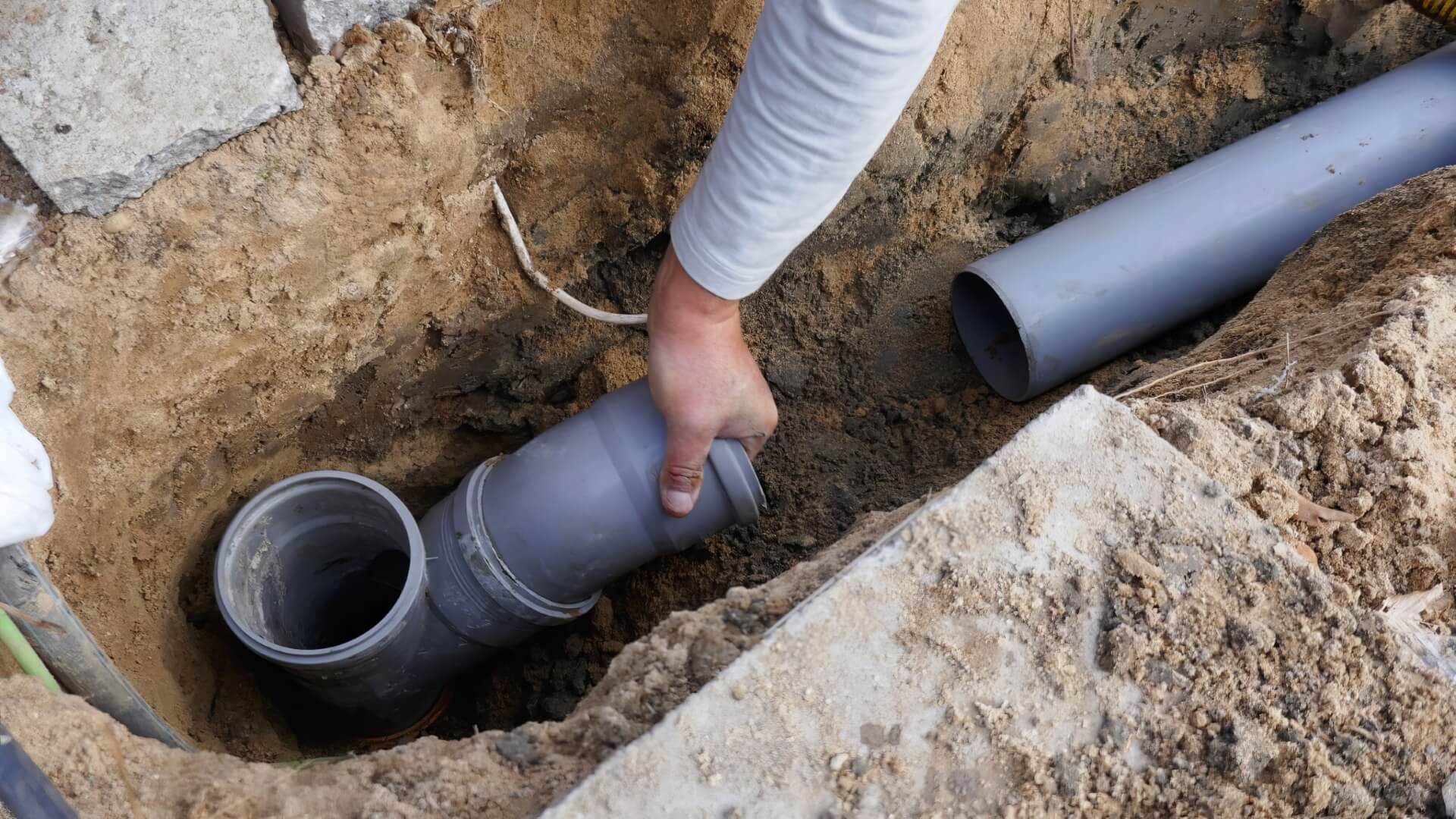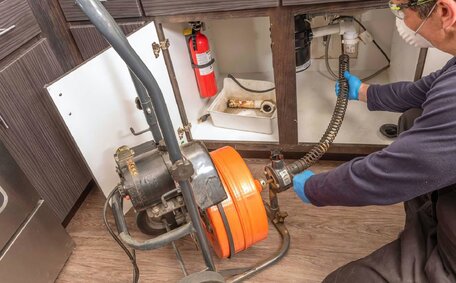What Causes Rusty Water Coming from Your Taps?
Rusty tap water often originates from corroded pipes in your home’s plumbing system. Over time, rust accumulation flakes off, leading to brown, red, or yellow discolouration in your tap water.
Aged galvanised steel and iron pipes can lead to sediment and rust accumulation which, when dislodged, discolors your water supply.
The following factors contribute to rusty pipes and the subsequent tainting of your water:
- Old galvanised steel or cast iron pipes - These can become rusty pipes from within, leaching rust into your water supply over decades of use.
- Disturbances from water mains - Water main breaks, particularly in pipelines decades old, can dislodge rust and compromise pipe integrity.
- Infrequent water use - When taps are unused, water stagnates, and accumulated rust in the pipes can lead to significant discoloration that needs to be cleared.
- Low water pressure - This condition can disrupt the normal water flow, letting rust enter the water.
- A deteriorating anode rod - When the anode rod in your water heater wears down, it can rust your water lines, impacting pipes your home relies on, from the inside of a corroding tank.
- High levels of iron manganese may cause brown water supply issues, as these components could chemically react within pipelines, resulting in brown discolouration due to rust accumulation.
Commonly, rusty particles from your hot water system aren’t necessarily dangerous, but they might cause staining and impart a metallic taste. However, persistent brown water from your taps indicates a need for a professional inspection to address potential corrosion and assess the need for replacements.
Is Rusty Water Harmful?
Although rusty tap water is generally safe, understanding the causes of discolouration is vital since tainted water can pose potential health risks. Rust particles alone aren’t a health hazard, yet they suggest problems related to the rust coming out of your pipes.
Here are some key considerations on the safety of rusty water:
- While rust itself isn’t toxic, if the water comes through a compromised water supply pipe, it might contain traces lead or bacteria that could be harmful if ingested.
- Brown water stains on fixtures are unsightly, but they’re not hazardous if you address rusty water promptly and remove the stains quickly.
- Rusty tap water most likely indicates degradation in your home’s water supply line infrastructure. Corroded supply lines coming your way can lead to leaks and potential contamination.
- Perceptible changes in taste, smell, or flow of your water signal a need for immediate attention.
- Babies, young children, pregnant women, and those with compromised immune systems are especially susceptible to contaminants like the water rusty residue your faucets may emit.
- While boiling may remove germs from brown rusty water, it could concentrate heavy metals, which is concerning for drinking water safety.
Although occasional discoloured water may not require action, consistent rust-coloured water warrants a professional examination of your faucets. It’s appropriate to call a plumber when you require a professional to check your pipes and water heater to tackle any hazard coming out your plumbing system.
How to Respond to Rusty Water
If you notice brown water coming your taps or a discoloured flow, here are some steps to take:
- Determine if the issue is isolated by filling basins from various taps to see if the brown water affects specific areas or only your hot water. This can reveal the specific problem your plumbing system is experiencing.
- Flush your pipes by running brown water, hot or cold, from affected taps for several minutes to clear any rust.
- Check your hot water unit - If you notice rusty water emanating solely from your hot tap, inspect your water heater for corrosion signs. Turn off the heater and inspect the tank.
- Contact your utility - Nearby construction or water pipes maintenance could stir up rust. Call your local water authority for confirmation.
- Consider installing a water softener or filter if you’re dealing with brown tap water, as it can remove rust particles and enhance water quality.
- For persistent issues, enlist a professional plumber to diagnose and resolve problem areas in your plumbing, which may include replacing pipes with rust buildup.
- Get your water tested - Laboratories can analyse your water for bacteria, lead, and other potential contaminants that cause discoloration.
- Avoid drinking - Until the cause is pinned down, what need to be done is to avoid consuming rusty water? Certainly, especially if you have health vulnerabilities.
While disconcerting, brown and rusty water from the tap is a treatable condition that you can address effectively. Minor cases of rusty water can be managed at home, but recurrent issues should prompt professional intervention. Timely action against rusty tap water protects your health and prevents further damage to your plumbing.
When to Call a Professional Plumber
Call us right away if:
- Brown water remains despite multiple attempts to flush pipes and the water heater
- Discoloration returns shortly after flushing taps
- Rusty water emerges from both hot and cold taps individually
- You have galvanised steel or iron pipes that are several decades old
- There are any drops in water pressure or flow
- Rusty water coincides with a change in taste or smell
- You have health concerns such as pregnancy, infants, or immunity issues
A professional plumber from Drummoyne Plumbing, equipped with experience and the necessary tools, is adept at diagnosing and resolving stubborn rusty water issues. They can:
- Visually inspect pipes and water heater for corrosion
- Isolate and test water from different outlets
- Evaluate water pressure and check for leaks
- Analyse water to identify contaminants
- Replace extensively corroded pipes and malfunctioning equipment
- Purify water to eliminate impurities when necessary
- Ensure a comprehensive resolution of the present issues
For persistent rusty tap water issues, contact the experts at Drummoyne Plumbing. With the necessary expertise, they diagnose and implement effective solutions, restoring normal flow and water quality.






